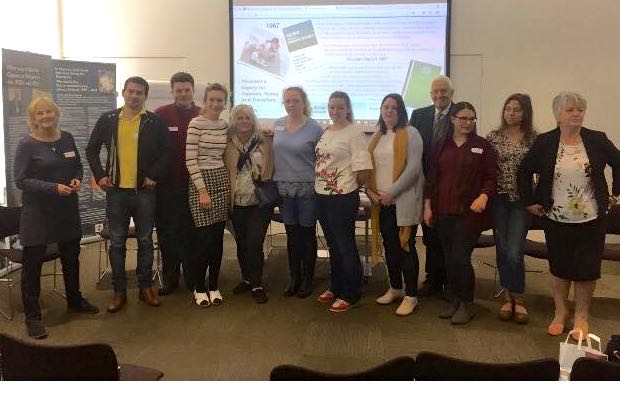[ngg_images source=”galleries” container_ids=”5″ sortorder=”28,27,29,46,30,31,32,33,34,35,36,37,38,39,40,41,42,26,43,44,45″ display_type=”photocrati-nextgen_basic_slideshow” gallery_width=”640″ gallery_height=”480″ cycle_effect=”fade” cycle_interval=”4″ show_thumbnail_link=”0″ thumbnail_link_text=”[Show picture list]” order_by=”sortorder” order_direction=”ASC” returns=”included” maximum_entity_count=”500″]
Category: ACERT
What’s the plan, Justine?
The recently published Race Disparity Audit told us nothing we didn’t know already:
Pupils from Gypsy or Roma backgrounds and those from a Traveller or Irish Heritage background had the lowest attainment of all ethnic groups throughout their school years. …. around a quarter of Gypsy and Roma pupils achieved a good level of development, making them around three times less likely to do so than average. At key stage 4 the disparity is wider; in 2015/16 the Attainment 8 score – an average of points scored for attainment in 8 GCSEs including English and Maths – for Gypsy and Roma pupils was 20 points compared with the English average of 50 points and 62 points for Chinese pupils. Gypsy and Roma pupils, and those from an Irish Traveller background, also made less progress compared with the average for pupils with similar prior attainment. They were also far less likely to stay in education after the age of 16 than pupils in any other ethnic group, with just 58% of Irish Traveller pupils and 62% or Gypsy and Roma pupils staying on in 2014/15, compared with 90% of White British pupils and 97% of Chinese pupils.(p.19)
The pupils most likely to be absent were Gypsy or Roma pupils, and those of an Irish Traveller background, with overall absence rates (that is, the percentage of all possible ‘sessions’ that were missed) of 13% and 18% respectively in 2016. (p.22)
Gypsy or Roma pupils, and those of an Irish Traveller background were also most likely to be excluded in 2015/16: 22% and 18% of pupils in these groups respectively were given fixed period exclusions, and 0.33% and 0.49% of each group respectively were permanently excluded.(p.23)
Only around two-thirds of Gypsy or Roma pupils (62%), and those of an Irish Traveller background (58%) stayed in education, employment or training in the 2014/15 academic year.(p.23)
If you think education is bad, other areas are worse! Apart from a single reference to to poor health of over 65 Gypsies, Roma and Travellers, these communities were invisible and ignored throughout the audit. The fact that the report is able to paint such a comprehensively negative picture is due to the inclusion of the ethnic categories Gypsy Roma and Traveller of Irish Heritage in the Pupil Level Census, a result of lobbying by ACERT and other voluntary organisations.
But recognising the problem is not to address it. There are signs that the DFE may be about to reinstate the Stakeholder group and are contacting local authorities for examples of good practice! The good practice exists, in the dustbins of the department, where it was chucked, unceremoniously in 2010. Bite your lips; they really may not know any better.
We know what to do: we just need the support of Government to do it. Peter Norton, and ACERT member, called for action in his letter to the Guardian, while Cassie-Marie McDonagh, of the Traveller Movement wrote a powerful opinion piece, explaining why things were unlikely to change quickly.
But good practice is not enough; it is a myth to say schools know best in all areas of practice; schools are mainly preoccupied with hitting centrally set guidelines, monitored by OFSTED. The guidance needs to be more explicit and schools selling Gypsies, Roma and Travellers short, should go into the Requires Improvement category.
Parliament considers Gypsies, Travellers and local communities
The full debate makes worthwhile but, in the main, depressing reading. Most of the MPs who spoke, were intent on amending and increasing existing legal powers to remove unauthorised encampments faster and cheaper. They were also intent on preventing private unauthorised developments. Most took care to point out that they were only talking about the minority of Gypsies and Travellers though in some cases their intolerance was only thinly disguised.
After almost three and a half hours Marcus Jones Parliamentary Under-Secretary of State (DCLG) brought the debate to a close, stating:
“I am, therefore, very pleased that, today, we have signalled our intention to seek a call for evidence to review the way in which existing powers are enforced and to understand what more can be done to tackle many of the issues raised in the debate”.
A number of MPs including David Linden, Andrew Slaughter, Kate Green, Tony Lloyd, Laura Pidcock and Paul Williams made strong speeches. These restored some balance into a debate that had seemed to focus on criminality ignoring two of the originally announced main themes. They raised important matters such as health, education, the Ministerial Working Group commitments, the removal by the government of accommodation needs assessments and the availability of sites.
For a fuller report and link to the official Hansard transcript:
What a day!

The ACERT mini-conference “The legacy of Plowden” was a lively and stimulating day, and the voices of the communities as strong and eloquent as ever. Here are some of the images of the day. Click here for full conference report and download of Arthur Ivatts presentation. Click on the image for more pictures from the day
